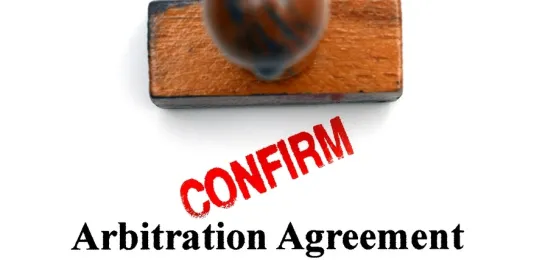In 2017, we discussed a reinsurance case where the district court articulated an exception to the functus officio rule that allows for clarification of an arbitral award. The Second Circuit has now affirmed that decision and joins the Third, Fifth, Sixth, Seventh and Ninth Circuits in allowing this exception.
In General Re Life Corp. v. Lincoln National Life Ins. Co., No. 17-2496-cv, 2018 U.S. App. LEXIS 33340 (2d Cir. Nov. 28, 2018), the Second Circuit recognized “an exception to functus officio: where an arbitration award is ambiguous, we hold that the arbitrators retain their authority to clarify that award.” The doctrine of functus officio limits the powers of arbitrators to alter an award once the arbitrators have decided the issue. Essentially, the doctrine means that once the arbitration panel has fully exercised its authority to adjudicate the issues submitted, the panel’s authority over those issues is ended and the panel has no further authority to redetermine those issues.
In this case, the arbitrators clarified an award when the parties returned to the panel over a dispute of how to calculate the payments required by the award. In clarifying the award, the a majority of the arbitration panel stated that the award contained ambiguities requiring clarification. The panel found that both parties were reading the award in a manner inconsistent with the language in the reinsurance agreement. The clarification itself stated that the final award was “not intended to and does not change the terms of the” reinsurance agreement.
In affirming the district court, the Second Circuit joins five other circuits in recognizing an exception to the doctrine where an arbitral award fails to address a contingency that later arises or when the award is susceptible to more than one interpretation (citations omitted). The court found that this exception was consistent with the well-settled rule that when asked to confirm an ambiguous award, the district court should instead remand to the arbitrators for clarification.
As articulated by the district court, and as confirmed by the Second Circuit, the arbitration panel does not become functus officio when it issues a clarification of an ambiguous award under the following three conditions: (1) the final award is ambiguous; (2) the clarification merely clarifies the award rather than substantively modifying it; and (3) the clarification comports with the parties’ intent as set forth in the agreement that gave rise to the arbitration. As the court said, “[t]his narrowly drawn rule ensures that in those circumstances where an arbitral body issues an ambiguous award and must issue a clarification, it will do so in keeping with the twin objections of arbitration: ‘settling disputes efficiently and avoiding long and expensive litigation.'” (citations omitted).
In affirming, the Second Circuit found no ground to disturb the arbitrators’ conclusion that the award was ambiguous. The court noted that it was appropriate, although not dispositive, to give due deference to the panel’s finding of ambiguity. The court held that the clarification “simply explains that the Final Award was intended to be read in the context of the Agreement.” Thus, said the court, the clarification does not rewrite the award.
In joining five other circuits, the Second Circuit adds heft to the weight of this exception to the functus officio doctrine.




 />i
/>i

